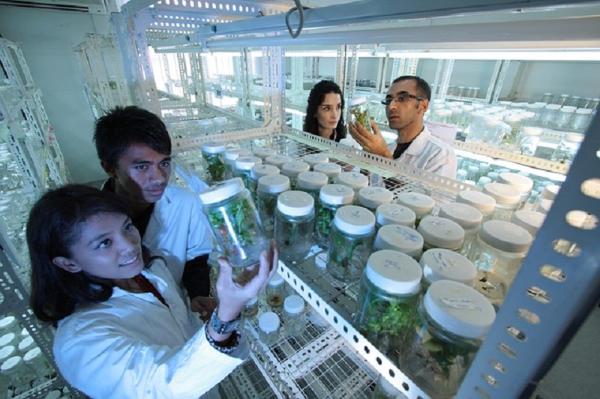Postdoc Awards
2025 Postdoc Award nominees!
The names of this year's nominees in AHSS, EPS and MHLS have now been released.
Winners will be announced at the Postdoc Showcase on Friday 26 September in celebration of National Postdoc Appreciation Week (15 - 19 September 2025).
The Postdoc Awards aim to recognise the exceptional contributions of postdocs to the University. In particular, they aim to reward those who excel in what they do, who “go the extra mile” in their research, in their contribution to the life of the University, and to Public Engagement, and in the provision of support for their group, colleagues and School etc.
Originally launched in 2018 within the MHLS Faculty, these awards were extended to include all three Faculties in 2019. The number and types of awards vary depending on the number of postdoctoral researchers in each Faculty and the nature of their activities (refer to the nomination procedure and forms for full details).
All awards are awarded once a year as part of National Postdoc Appreciation Week.
We encourage all University staff to consider nominating postdocs who have performed exceptionally well.
-
Award categories
Research category (for MHLS, EPS and AHSS awards)
This award recognises research and impact activities. It can, for example, relate to contributions to the progression of projects (creative approaches and problem-solving, development of methodologies and tools…), the generation of new knowledge and quality outputs (publication of papers, patents, books, policy reports, code/software, open access datasets…), invited presentations at international conferences and other research dissemination activities to the research and innovation community, obtaining of prizes and similar marks of esteem, as well as the generation of new research ideas and proposals (for external funding etc.). This category also rewards the establishment and management of collaborations and partnerships with academia and other sectors, contributions to impact and societal benefit (including influence on policy and how public or private bodies function, innovation and commercialisation, entrepreneurship/spin-out companies, development of new patent applications and products, consultancy…), as well as external engagement with the public, patients or other stakeholders for research purposes (e.g. PPI and research co-creation and consultation).
Note: research dissemination to the public and media should not be included in this category and should be included in the ‘Citizenship and Outreach’ category.
Citizenship and Outreach category (for MHLS, EPS and AHSS awards)
This category recognises postdoc involvement in QUB business and in the wider research and innovation sector through, for example: dissemination of research to non-specialist audiences (public talks, festivals, events, social media, dissemination via mainstream media or blogs, vlogs…), student recruitment and inspiring young people (engagement with schools, university open days, student recruitment events, widening participation activities…), committee work and representation, the organisation of research events (e.g. conferences, symposia, courses…), contributions to a positive research culture (championing of Equality, Diversity and Inclusion, research integrity, open access, supporting local student symposia and events…), contributions to a positive working environment (organisation of networking and social events…) and other marks of administrative leadership. Contributions to national, international, or field-specific societies, committees, and boards are also relevant to this category, as well as refereeing activities (editing, reviewing papers and proposals etc.).
Note: this award rewards public engagement relating to the dissemination of research, not the development of collaborations with external partners such as industrial partners, engagement with innovation and commercialisation, as well as PPI embedded within the research project; these activities are rewarded as part of the ‘Research’ category.
In the case of AHSS nominees, this award also includes the items corresponding to the ‘Support’ category in MHLS and EPS.
Support category (for MHLS and EPS awards only)
This award recognises postdoc involvement in the supervision, training and mentoring of students and fellow staff members (through mentoring programmes, career events, workshops, summer schools), as well as teaching. Contributions to the functioning of the team/group (organisation of team building activities or away days, laboratory rotas, team Health and Safety, regular team meetings or journal clubs…) and coordination of research delivery (e.g. project and collaboration management, budget management) are also included in this category.
- Who can nominate / be nominated?
Who can be nominated?
- Each nomination must be for an individual postdoc
- Nominees should be current postdocs within each of the three faculties (Research Assistants with a PhD, Research Fellows, Senior Research Fellows, holders of an early-career postdoctoral fellowship, or similar AC1 to AC3 Research staff with a PhD). PhD candidates are not eligible.
- Vice-Chancellor Fellows, Illuminate Fellows or holders of category C or D fully independent fellowships (see criteria defining fellowship categories) are not eligible.
- Postdocs who won one of the postdoc awards the previous year cannot be nominated in the same category the following year (see 2024 winners on the website).
Who can nominate?
- Any Queen’s staff member (PI, Postdoc, technical staff, administration staff…) can nominate a maximum of one postdoc per category. Use separate forms for each award.
- PhD candidates can nominate postdocs in the Support category only.
- Postdocs can self-nominate, but only in one category.
- If several people wish to nominate the same person, they should write one nomination together (and list all their names as ‘nominators’), for the consideration of the judges' time. Judges will focus on the content of the nominations and not the number received. Separate individuals should not submit the same copied/pasted nomination.
- What to include in the nomination?
- The nomination should include an abstract summarising your main reasons for nominating the postdoc and a list of a maximum of 10 ranked achievements supporting your nomination (to be provided on the relevant section of the nomination form).
- The activities which qualify must have been carried out (or be planned) within the academic year, between September 2024 and August 2025 (inclusive).
- As a signatory of DORA (the Declaration On Research Assessment), we do not permit the use of narrow metrics like Impact Factors in the nominations, and require that the quality of the achievements listed is provided via the contextualisation of their significance and impact instead.
- The achievements supporting the nomination should include specific facts and examples, describing what the contribution of the individual to the initiative was (for example, taking inspiration from the CRediT taxonomy), as well as the impact it had; this may be an impact on the progress of their research, on their team or another group of colleagues, on their field, on the development of another individual, on local culture, on society, on the economy etc.
- Ensure the achievements you provide are relevant to the category you have chosen and took place within the eligible timeframe. The category descriptions above indicate the type of eligible achievements. Note that not all elements listed are required and the list is not exhaustive. Facts that do not align with the category or are outside the timeframe won’t be considered by the panel (for example, do not include papers published for the citizenship category).
- Rank the achievements, starting with the one you consider to be most important.
- If relevant, you can highlight some specific circumstances that you feel the panel should be aware of at the end of your nomination, for example, if the individual you are nominating was on leave for part of the eligible timeframe or works part-time.
- How to submit a nomination?
- Download and complete the form below which corresponds to the Faculty of the nominee, respecting the instructions above.
- Send the completed form as a Word document (not a PDF which complicates the anonymisation process for PDC staff) to the PDC (pdc@qub.ac.uk), with the Subject: MHLS, EPS or AHSS (as relevant) Postdoc Awards, by Monday 30 June at 23:59.
- The PDC will acknowledge receipt of your nomination. If you do not receive confirmation of receipt within two working days, please get in touch to ensure your email was received.
Download the AHSS 2025 nomination form
- Outcome
- Each nomination will be evaluated by a panel including the Faculty Dean of Research or a nominee, the PDC Officer or Research Culture Manager, a faculty academic (e.g. PROG Academic Representative) and a member of staff within the Research and Enterprise Directorate working with the faculty.
- If a substantial number of nominations are received within one category, the panel may decide to also award a reasonable number of ‘highly commended’ mentions in addition to selecting a winner. Winners will receive a £150 voucher.
- Winners will be announced at the Postdoc Showcase which is scheduled to take place on Friday 26 September at Queen’s University Belfast, in celebration of National Postdoc Appreciation Week (15 - 19 September 2025).
- The results will be displayed on the PDC Postdoc Awards’ webpage and shared on the PDC X account (@QUBpostdoc).




